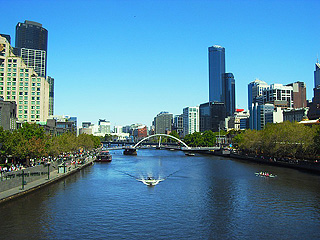Bosnian Translation for Death Certificate
 We can translate death certificates from/to any language for legal purposes in Australia.
We can translate death certificates from/to any language for legal purposes in Australia.
If you need certified translation from a trusted translation service provider, contact us for a quote. Our full-time, professional Bosnian translators are ready to assist with any Bosnian document translation request.
NAATI Certified Translator for Fast Bosnian Document Translation
- Simply upload your document using the form on this page
- Secure payment online using credit card
- Affordable translation, no hidden cost
- NAATI translator certification, accepted for official use in Australia
- A translation agency that delivers on time and does not depend on just one individual
- Low Price, Fast Delivery
- Discount for repeat customers or large orders
- Full-time, professional translators experienced in translating all kinds of documents
- Personal, friendly service
Besides translating death certificates, we also translate for the following documents:
- ID card translations
- Degree translations
- Diploma translations
- Passport translation
- Family register/book translations
- Employment reference translations
- Police Clearance Certificate Translation
- Change of name certificate translations
- Vaccination certificate translations
- Education certificate translations
- Employment reference translations
- Birth certificate translation
- Tertiary certificate translations
- Identity certificate translations
- Divorce certificate translations
- Baptism certificate translations
- Custody document translations
- Academic transcript translations
- Legal translation services
- Death certificate translation
- Degree certificate translations
- Marriage certificate translations
- Medical certificate/report translations
- Letters of appointment translations
- Employment contract translations
- Academic transcript translations
- Professional certificate translations
- Trade certificate translations
- Driving licence translation
- Motor cycle licence translations
- Primary school certificate translations
- Secondary certificate translations
- Vocational certificate translations
- Sydney
- Melbourne
- Brisbane
- Perth
- Canberra
- Darwin
- Hobart
- Adelaide
- Wollongong
- Newcastle
- Cairns
More About The Bosnian Language
The modern Bosnian language uses both Cyrillic and Latin alphabet. However, scripts other than Latin were used much earlier, most notably the indigenous Bosnian Cyrillic called Bosančica (literally "Bosnian script") and dates back to the late 10th and early 11th centuries AD. The Humac tablet, one of the oldest Bosnian literacy monuments, is written in this script. The script is of the greatest significance to Bosnian history and linguistics, since it is the one script that is purely native to Bosnia and Herzegovina and is linked to the Bosnian medieval monarchy and the medieval Bosnian religion where it was used abundantly. It can also be found in many royal state documents and as well on old stećaks. The substantial influence of bosančica on medieval Bosnia has unfortunately made it a target of controversial debates and propaganda throughout the history which has led to the tendency of some Croat and Serb philologists and paleographers to deny the exclusivity of association of the script with medieval Bosnian state, and associate it to Croatian and Serbian cultural provenience, despite its geographical origin and the historical prevalence of usage. Other scripts used include: begovica (used by Bosniak nobility) and arebica, or Arabic script adjusted to write Slavic speech, also chiefly used by Bosniak nobility during the Ottoman era.
The irony of the Bosnian language is that its speakers are, on the level of colloquial idiom, more linguistically homogeneous than either Serbs or Croats but they failed, for the historical reasons outlined below, to standardize their language in the crucial 19th century. The first Bosnian dictionary, a rhymed Bosnian–Turkish glossary authored by Muhamed Hevaji Uskufi, was composed in 1631. But unlike e.g. Croatian dictionaries, which were written and published regularly, Uskufi's work remained an isolated foray. At least two factors were decisive:
- The Bosniak elite wrote almost exclusively in foreign (Turkish, Arabic, Persian) languages. Vernacular literature, written in modified Arabic script, was thin and sparse.
- The Bosniaks' national emancipation lagged behind that of the Serbs and Croats, and since denominational rather than cultural or linguistic issues played the pivotal role, a Bosnian language project didn't arouse much interest or support.
Serbia includes the Bosnian language as an elective subject in primary schools. Montenegro officially recognizes the Bosnian language, as its 2007 Constitution specifically states that while Montenegrin is the "official language," also "in official use are Serbian, Bosnian, Albanian and Croatian languages."
Bosnian Death Certificate Translation
Upload your documents here for translationOur Valued Clients

